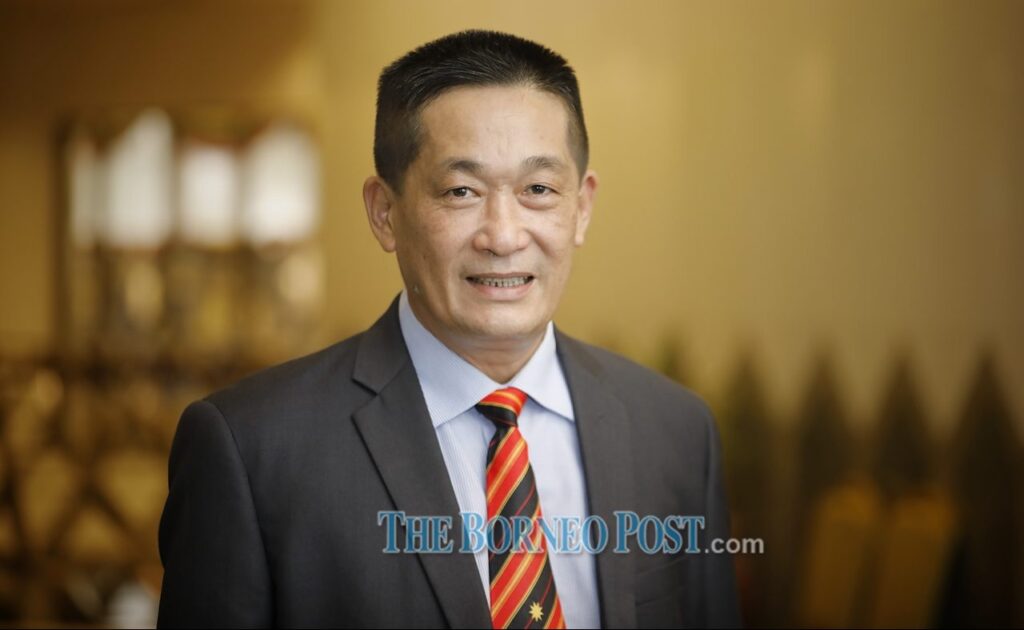See Chee How
KUCHING (May 10): Batu Lintang assemblyman See Chee How has added his voice to opposition calls for the State Legislative Assembly (DUN) to convene to deliberate the Covid-19 situation in Sarawak.
He said it is wrong for some quarters to say that the DUN sitting cannot be held during the current Emergency period.
“While those constitutional provisions regarding the sitting of the DUN are of no effect during this time, Section 15(1)(b) of the Emergency (Essential Powers) Ordinance 2021 provides that a State Legislative Assembly can be summoned on a date as the Yang di-Pertuan Agong thinks appropriate after consultation with the respective ruler or the Yang di-Pertua Negeri.
“I would urge our DUN Speaker Datuk Amar Mohamad Asfia Awang Nassar to advise the Governor and the Chief Minister on the effect of the provisions, to make a representation and request to the Yang di-Pertuan Agong, for the State Legislative Assembly to sit next month,” he said in a statement Saturday.
See said the global Covid-19 pandemic has posed an unprecedented challenge to all countries and taken away human lives.
He believed what is most essential is for parliaments and legislative assemblies to meet and deliberate on emergency legislations and measures to protect all the people.
“Parliaments and legislative assemblies are essential arms of the government which can help and support the governments to manage the crisis.
“All over the world, countries are focused on normalising the works of their parliaments and legislative assemblies, to ensure that emergency legislatures and policies are enacted to facilitate the implementation of the necessary health measures, vaccination and deliberating on the best solutions to safeguard and protect the millions of families who are losing their incomes and their means to livelihood.
“Through the meetings of their parliaments and legislative assemblies, the people’s representatives are better informed and the assemblies are able to make better and more informed decisions,” he said.
See added that in turn, these people’s representatives are better informed and equipped to reach out to their constituents to help the government to promote health measures, and provide solutions to help all the people and families to overcome their problems.
It is a good lesson to learn from others that parliaments and legislative assemblies can function during this global pandemic, and the legislative and policy deliberations are helping countries to be on track to the nations’ recovery, he pointed out.
According to him, the European Union’s ‘Inter Peres’ or Parliaments in Partnership tracked the response of 166 parliaments during the Covid-19 pandemic last year, to find that there were essentially five types of responses: exceptional adjournment or dissolution, partial suspension of business, procedural change, adopting social distancing measures, and continuing with their normal procedure.
He said Malaysia is amongst the 18 countries which have exceptionally adjourned or dissolved their parliaments, along with India and countries like Belize, Botswana, Guyana and Suriname.
He said some 20 countries, including China, Japan, South Korea and Papua New Guinea, are having their parliament and legislative assembly meetings much as normal.
He said while five countries have partially suspended their parliamentary business, 42 countries observed social distancing by complying with World Health Organisation guidelines.
The majority 81 countries are adopting procedural changes such as special scheduling, reduced quorums, and use of virtual and remote communication technology for the plenary sessions and meetings, he said.
See noted that the Inter-Parliamentary Union (IPU) of which Malaysia is a member has launched a campaign called ‘Parliaments in times of pandemic’ to report on the efforts of parliaments around the world, to fulfil the basic responsibilities of parliament, such as representing citizens and supervising the executive branch.
“We need the Sarawak DUN to sit and discuss matter that are affecting Sarawak and all Sarawakians, such as the procurement of vaccines and improvement of our public healthcare facilities to reduce our reliance on Putrajaya.
“We also need to discuss the necessary statewide efforts to register eligible Sarawakians for vaccination to ensure that our vaccination process is swift and allowing Sarawak to develop the herd immunity needed to hopefully end the pandemic in Sarawak and very importantly, the necessary actions and intervention to provide assistance to the business sectors that are suffering during this trying time and the families who are losing their incomes and their means to livelihood, and essentially the strategies and rescue plans to boost Sarawak’s economic recovery and our return to normalcy,” he said.
The post Wrong to say DUN can’t convene during Emergency – Batu Lintang rep appeared first on Borneo Post Online.

